Maintenance Checklist for Your Water Purification System: Practical Guide for Reliable Performance
- Introduction: Why a Maintenance Checklist for Your Water Purification System Matters
- Protect performance, save costs
- Daily and Weekly Checks: Quick Tasks to Catch Issues Early
- Visual and basic operational checks
- Monthly Tasks: Maintain Filter Life and System Balance
- Routine replacements and performance logging
- Quarterly and Semiannual Tasks: Deeper Maintenance Steps
- Protect core components and ensure disinfection
- Annual Tasks: Major Service and Water Quality Validation
- Comprehensive inspection and component replacement
- Checklist Table: Component, Typical Replacement Interval, and Notes
- Quick reference for replacement planning
- Troubleshooting: Common Problems and How the Checklist Helps
- Diagnose issues quickly with data
- Spare Parts Inventory: Be Prepared to Minimize Downtime
- Which parts to keep on hand
- When to Call Professionals: Service Triggers
- Know when DIY isn’t enough
- Water Quality Targets and Testing Guidance
- What numbers to watch on your checklist
- Record Keeping and Digital Checklists
- Use logs to prove performance and plan purchases
- Conclusion: Implementing Your Maintenance Checklist for Reliable Water
- Consistent maintenance protects quality and reduces lifecycle costs
- Frequently Asked Questions
Introduction: Why a Maintenance Checklist for Your Water Purification System Matters
Protect performance, save costs
Keeping a water purification system well maintained preserves water quality, extends equipment life, and reduces operating costs. This Maintenance Checklist for Your Water Purification System is designed for homeowners, facility managers, and plant engineers who want practical, actionable steps—whether you run a residential reverse osmosis (RO) unit, a commercial filtration bank, or an industrial treatment train. AQT (Aqualitek Water Treatment Technologies Co., Ltd.) supplies systems and replacement parts worldwide, and this guide reflects industry best practices to help you avoid downtime and costly repairs.
Daily and Weekly Checks: Quick Tasks to Catch Issues Early
Visual and basic operational checks
Daily and weekly inspections are simple but effective. Include these items on your Maintenance Checklist for Your Water Purification System to detect leaks, flow drops, or unusual noises early:
- Check for visible leaks at connections, housings, and valves.
- Monitor product water clarity and smell; note any sudden changes.
- Verify system pressures and gauges are in normal ranges (residential RO feed pressure typically 40–80 psi).
- Record daily or weekly TDS readings from a handheld meter to spot performance drift.
Monthly Tasks: Maintain Filter Life and System Balance
Routine replacements and performance logging
Monthly tasks help keep pre-treatment effective and protect core elements like membranes and UV lamps. Add these items to your Maintenance Checklist for Your Water Purification System:
- Replace sediment/PP pre-filters every 3 months (or sooner if turbidity is high).
- Inspect carbon filters for pressure drop and replace every 6–12 months depending on chlorine load.
- Check and log permeate and concentrate flow on RO systems; a declining permeate flow can indicate fouling.
- Clean or backwash multimedia or activated carbon beds as recommended by manufacturer.
Quarterly and Semiannual Tasks: Deeper Maintenance Steps
Protect core components and ensure disinfection
Every 3–6 months, perform the following to maintain water quality and system efficiency:
- Sanitize and disinfect storage tanks and housings if bacterial growth is suspected or if the system has been idle.
- Inspect and lubricate O-rings and replace any that show wear to prevent leaks.
- Check booster pumps, motor bearings, and belts; tighten or replace as needed to maintain pressure and flow.
- Test residual chlorine (if applicable) and verify activated carbon is still adsorbing adequately.
Annual Tasks: Major Service and Water Quality Validation
Comprehensive inspection and component replacement
An annual, documented service ensures your system remains compliant and reliable. Include these annual items on your Maintenance Checklist for Your Water Purification System:
- Replace RO membranes every 2–5 years (typical lifespan depends on feed water quality and maintenance). Check manufacturer specs for your membrane model.
- Replace UV lamps annually (typical life ~9,000–12,000 hours) and replace quartz sleeves if cloudy or scratched.
- Perform comprehensive water testing: TDS, conductivity, microbiological (heterotrophic plate counts or pathogen-specific tests if required), pH, and major ions based on application.
- Calibrate instruments and sensors (TDS meters, conductivity probes, pressure gauges, and flow meters).
- Conduct a full system sanitation and performance validation with documented results.
Checklist Table: Component, Typical Replacement Interval, and Notes
Quick reference for replacement planning
| Component | Typical Replacement Interval | Notes ( Keywords) |
|---|---|---|
| Sediment (PP) Pre-filter | 3 months | Buy replacement filters; protects RO membrane |
| Activated Carbon Cartridge | 6–12 months | Replace to remove chlorine; improves taste |
| Reverse Osmosis Membrane | 2–5 years | Membrane replacement service; depends on feed water TDS |
| UV Lamp | Annually (~9,000–12,000 hours) | UV lamp replacement and quartz sleeve cleaning |
| Storage Tank Sanitation | Annually | Tank cleaning service; prevents biofilm |
Troubleshooting: Common Problems and How the Checklist Helps
Diagnose issues quickly with data
Use the Maintenance Checklist for Your Water Purification System to diagnose common problems:
- High TDS in product water: check pre-filters, membrane integrity, and feed pressure; verify TDS meter calibration.
- Low flow or low pressure: inspect feed water pressure, clogged pre-filters, pump failure, or membrane fouling.
- Bad taste or odor: replace carbon filters and check disinfection processes; consider microbial testing if odor persists.
- Frequent leaks: replace worn O-rings, tighten housings, and use proper installation torque. Keep spare O-rings in inventory.
Spare Parts Inventory: Be Prepared to Minimize Downtime
Which parts to keep on hand
For and fast servicing, maintain a critical spare parts list to minimize downtime. Typical inventory for a small commercial or residential system includes:
- Sediment and carbon cartridges (2–3 sets)
- One replacement RO membrane (per unit)
- UV lamp and quartz sleeve
- Assorted O-rings, housing wrenches, and fittings
- Basic sensor spares: TDS meter, conductivity probe
When to Call Professionals: Service Triggers
Know when DIY isn’t enough
Some tasks should be handled by trained technicians—especially when safety or regulatory compliance is involved. Contact AQT or an authorized service partner when you encounter:
- Persistent microbial contamination or failed microbiological tests.
- Membrane replacement in multi-stage or high-pressure systems requiring specialized tools.
- Electrical or control panel failures on commercial/industrial skid systems.
- System retrofits or upgrades to improve recovery or reduce wastewater.
Water Quality Targets and Testing Guidance
What numbers to watch on your checklist
Documenting test results is a key part of the Maintenance Checklist for Your Water Purification System. Common reference targets:
- TDS: residential product water often <50–300 mg/L depending on source and treatment. EPA secondary standard for TDS is 500 mg/L (aesthetic guideline).
- RO rejection: high-quality membranes typically achieve 95–99% salt rejection under proper conditions.
- UV dose: ensure lamp provides manufacturer-specified dose (mJ/cm2) by replacing lamps annually and cleaning sleeves.
Record Keeping and Digital Checklists
Use logs to prove performance and plan purchases
Maintain a service log with dates of filter changes, TDS readings, pressure readings, and technician visits. Digital checklists can integrate reminders for purchasing replacement filters or scheduling annual service, which supports both operational continuity and commercial procurement planning.
Conclusion: Implementing Your Maintenance Checklist for Reliable Water
Consistent maintenance protects quality and reduces lifecycle costs
A practical Maintenance Checklist for Your Water Purification System combines daily observations, monthly consumable changes, quarterly inspections, and annual validations. For businesses and homeowners seeking turnkey support, Aqualitek (AQT) offers replacement parts, maintenance packages, and customized service agreements to keep systems optimized. Regular maintenance preserves water quality, prevents costly failures, and ensures your system delivers safe, palatable water when you need it.
Frequently Asked Questions
How often should I test output water TDS?
Test TDS monthly for residential systems and weekly for critical commercial applications. Increase frequency if you notice taste changes or performance declines.
What's the typical lifespan of an RO membrane?
Usually 2–5 years. Lifespan depends on feedwater TDS, pre-treatment quality, and maintenance frequency.
Can I replace filters myself?
Yes—cartridge changes and simple replacements are DIY-friendly. For membrane changes, UV lamp replacements, or control issues, consider a certified technician to ensure warranty and performance.
What should I keep in a spare parts kit?
Keep sediment and carbon cartridges, one spare RO membrane, an extra UV lamp, O-rings, and basic fittings to minimize downtime.
How do I know when to schedule professional maintenance?
Schedule professional service for annual sanitation, failed microbial tests, major component replacements, or electrical/control issues.
Water Purification System Certifications to Trust

Maintenance and Lifecycle Considerations for Electrodeionization
Industrial Reverse Osmosis Machine Costs 2026
Signs Your Water Purification System Needs Repair — Practical Guide
Solutions
What industries does AQT serve?
We provide water treatment solutions for a wide range of industries, including:
1. Industrial Manufacturing – Process water treatment, cooling water, and boiler feed.
2. Hospitality & Commercial – Hotels, restaurants, and office buildings.
3. Residential Applications – Drinking water purification and softening.
4. Healthcare & Pharmaceuticals – Ultra-pure water for laboratories and hospitals.
5. Municipal & Public Utilities – Water supply and wastewater treatment.
6. Food & Beverage Processing – Filtration for beverage p
FAQ-aqualitek
Are AQT’s water treatment products certified?
Yes! Our products comply with international quality and safety standards, including ISO, CE, and NSF certifications. We prioritize high-quality materials, advanced technology, and strict quality control to ensure superior performance and reliability.
Can I use AQT’s water treatment systems for seawater desalination?
Yes! We provide seawater desalination systems using advanced reverse osmosis (RO) technology, specifically designed to convert seawater into fresh, drinkable water. These systems are ideal for coastal communities, marine applications, and industrial desalination projects.
What industries does AQT serve?
We provide water treatment solutions for a wide range of industries, including:
Industrial Manufacturing – Process water treatment, cooling water, and boiler feed.
Hospitality & Commercial – Hotels, restaurants, and office buildings.
Residential Applications – Drinking water purification and softening.
Healthcare & Pharmaceuticals – Ultra-pure water for laboratories and hospitals.
Municipal & Public Utilities – Water supply and wastewater treatment.
Food & Beverage Processing – Filtration for beverage production and food safety.
Ion Exchange Water Treatment Systems
Are mixed bed systems better than two-bed systems?
Mixed bed polishers are used for final polishing after RO or two-bed deionization to achieve ultra-pure water.

500 LPH Reverse Osmosis (RO) Water Purification Machine TWV - 412
Our 500 LPH Reverse Osmosis (RO) System is engineered to provide high-quality purified water for commercial applications. Designed with advanced RO technology, durable components, and a user-friendly interface, this system ensures consistent performance, low maintenance, and long-term reliability.
With its compact design and robust skid-mounted frame, it’s an excellent choice for businesses that demand efficiency and quality in water purification.

Tap Water Reverse Osmosis (TWRO) Systems TWV Series
TWV series Reverse Osmosis (RO) systems are pre-engineered and pre-assembled units with 2.5”/4” membrane housings(single element type)for tap water(lower TDS).They are designed for overall superior performance, high recovery rates and offer great savings with low maintenance and operation costs.

Tap Water Reverse Osmosis (TWRO) Systems TWF Series
TWF series Reverse Osmosis (RO) systems are pre-engineered and pre-assembled units with 4” membrane housings(multiple elements type) for tap water(lower TDS) .The medium large volumes can help meet your a variety of commercial and industrial applications. They are designed for overall superior performance, high recovery rates and offer great savings with low maintenance and operation costs.

Tap Water Reverse Osmosis (TWRO) Systems TWE Series
TWE series Reverse Osmosis (RO) systems are pre-engineered and pre-assembled units with 8” membrane housings for tap water (lower TDS). The large volumes can help meet your a variety of industrial applications. They are designed for overall superior performance, high recovery rates and offer great savings with low maintenance and operation costs.
Request More Information
Contact us today for product catalogs, customization options, and a free quotation designed for your business needs.
Rest assured that your privacy is important to us, and all information provided will be handled with the utmost confidentiality.
© 2026 AQUALITEK. All rights reserved.

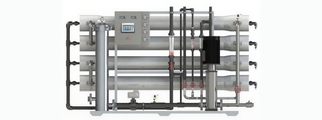
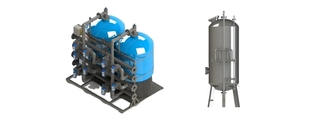
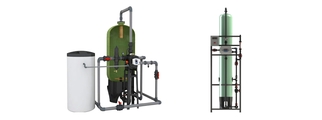
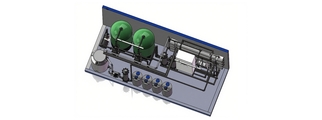
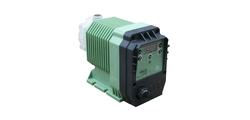
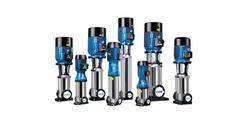
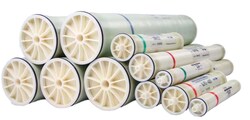
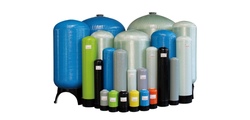
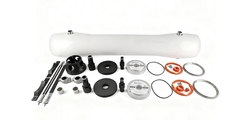
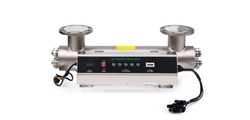
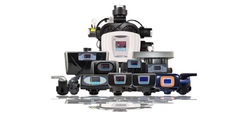
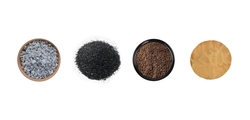
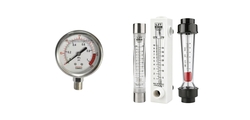
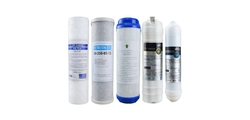
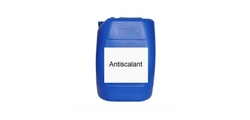
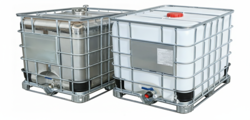
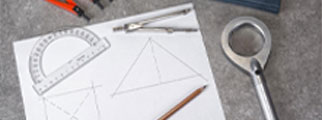



AQUALITEK- Aimee Hoo
AQUALITEK - Aimee Hoo